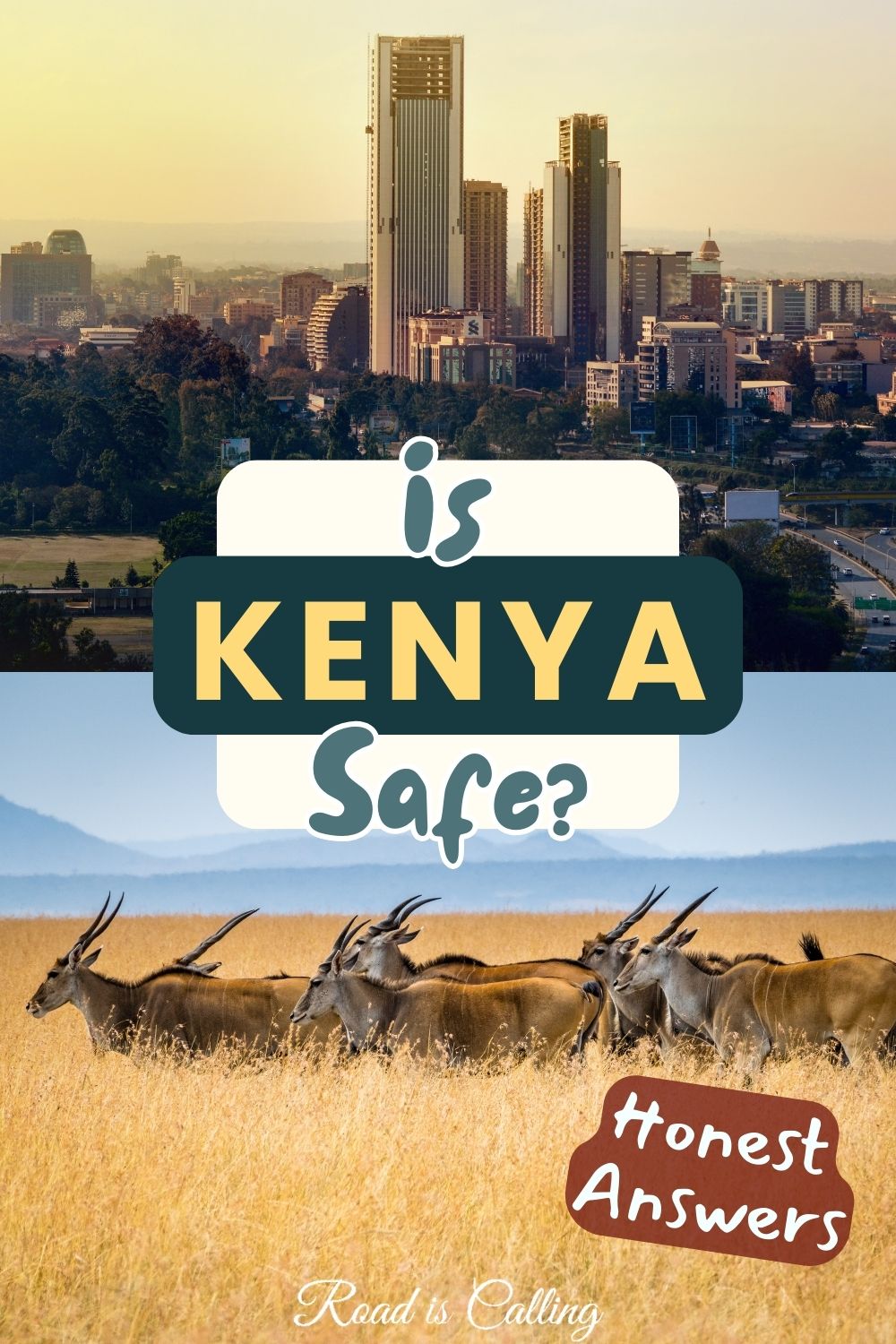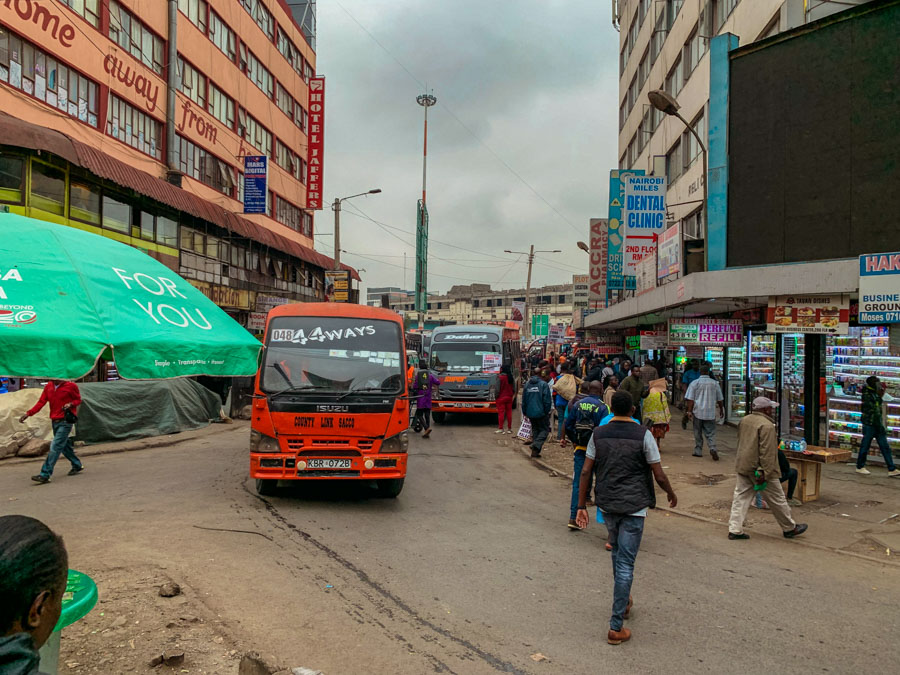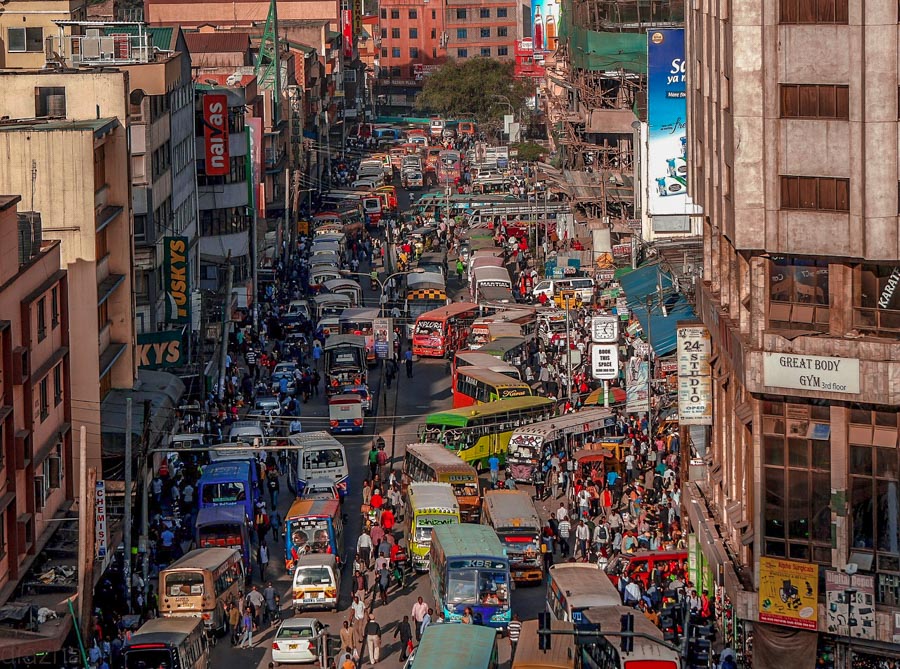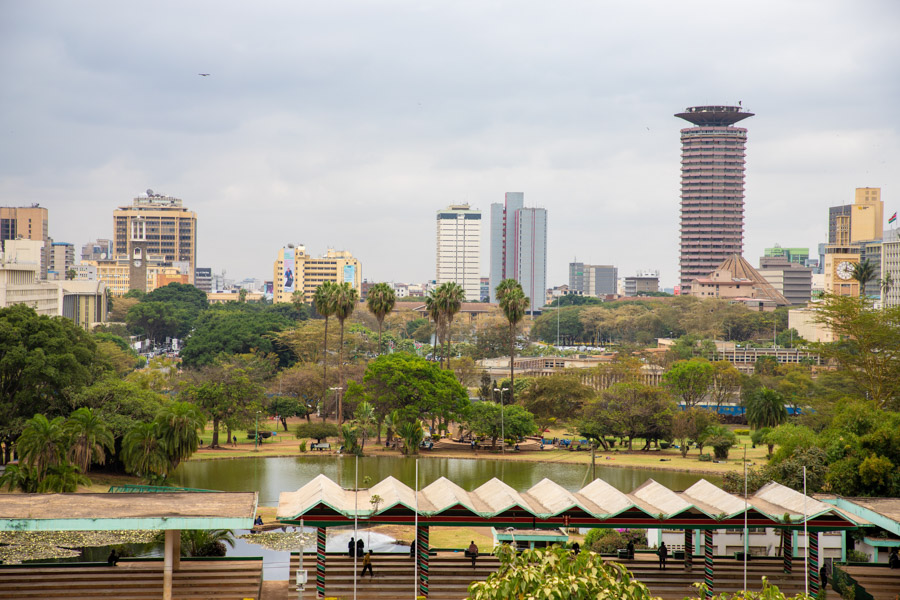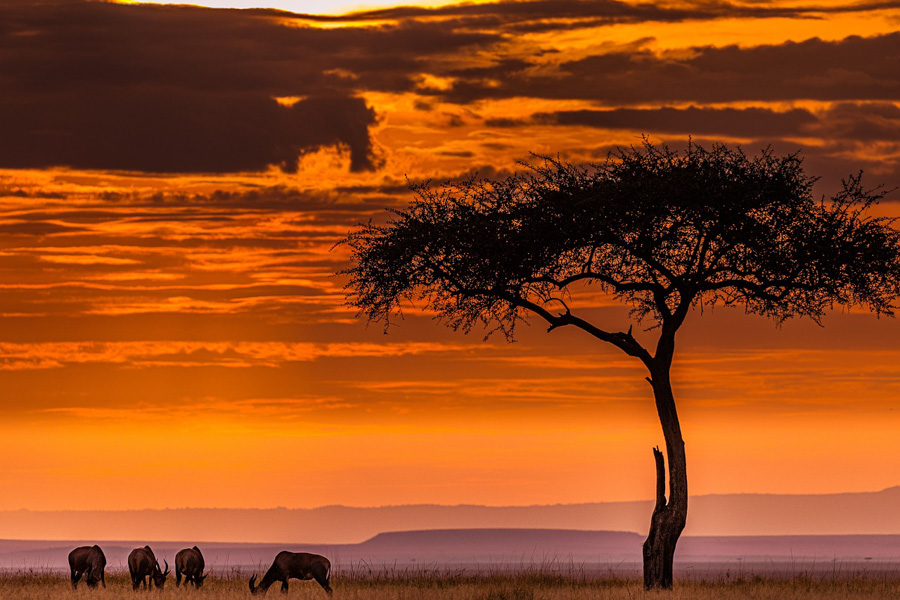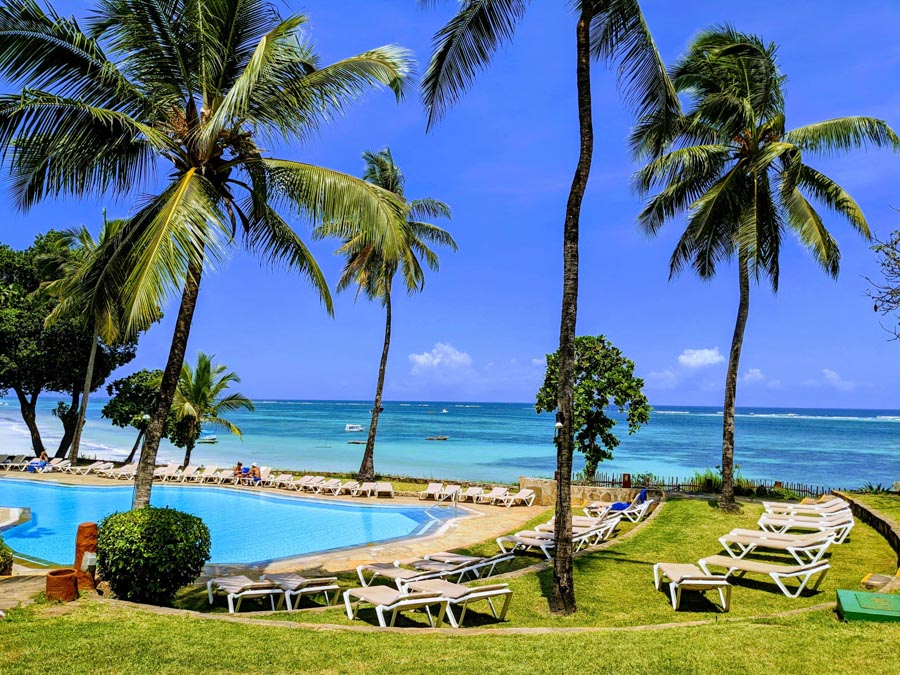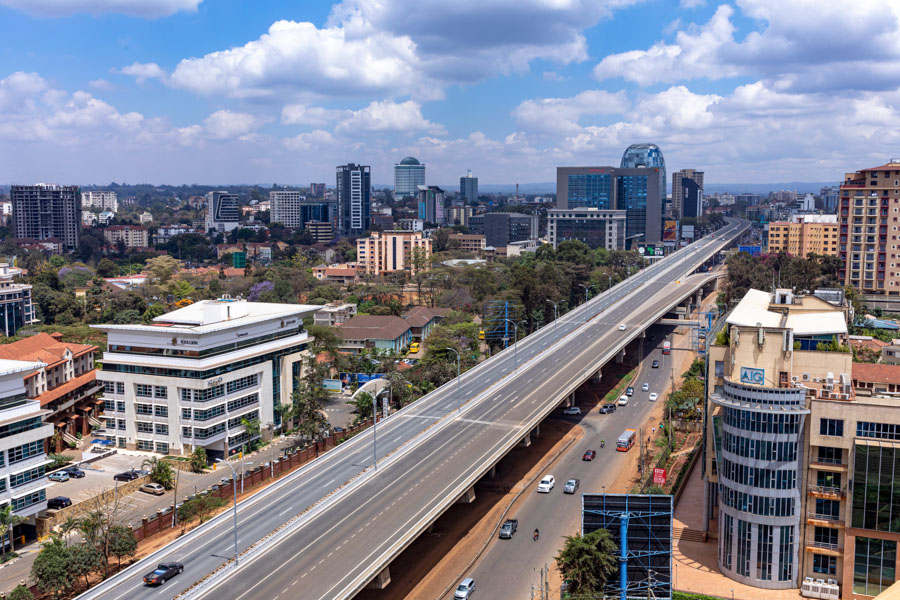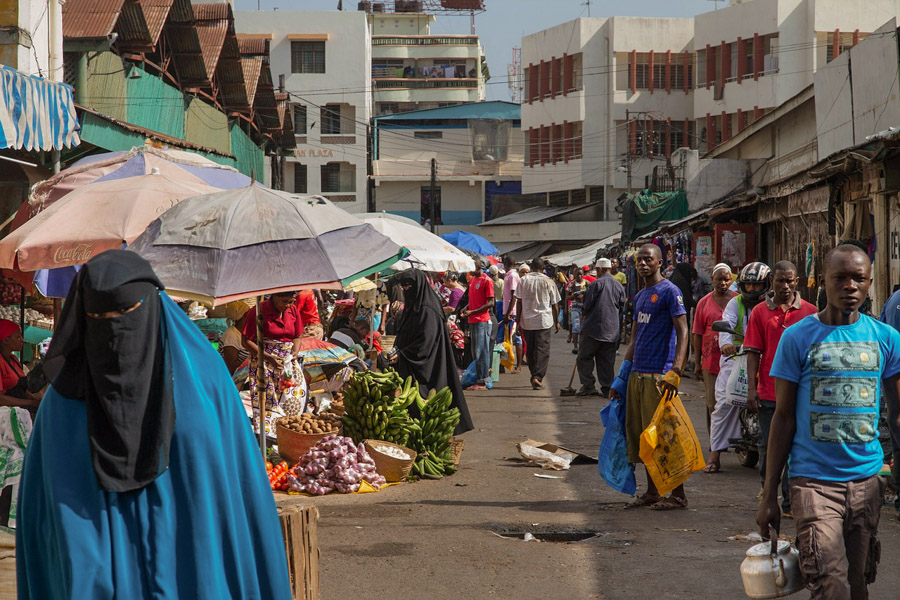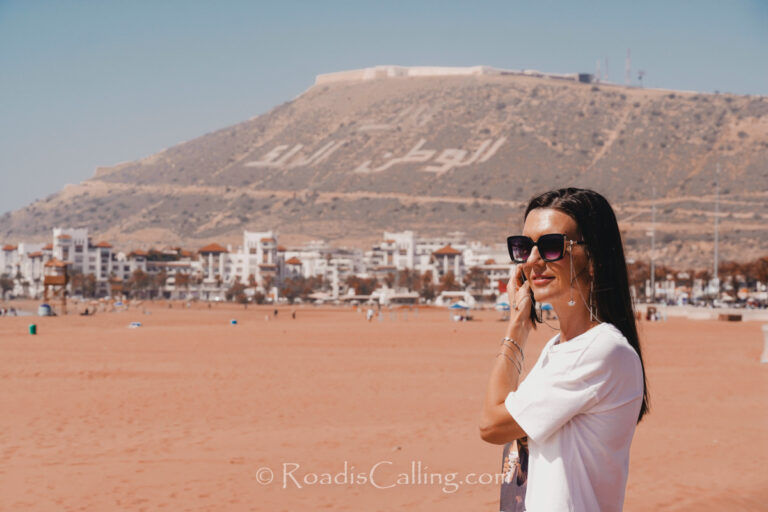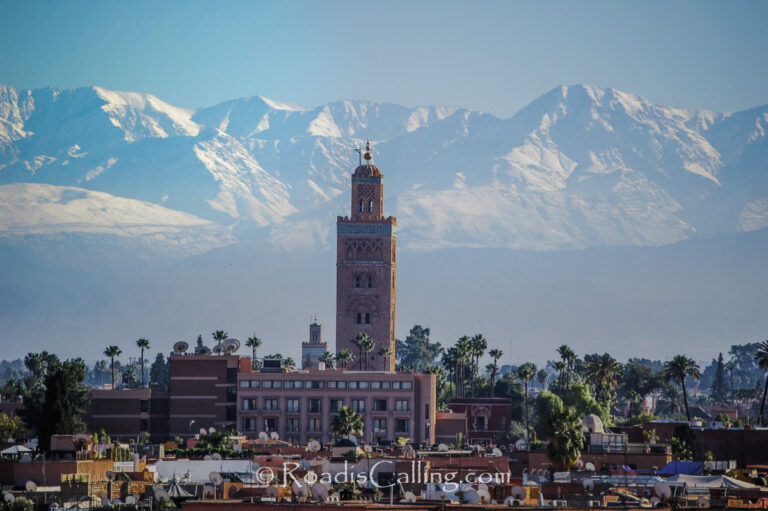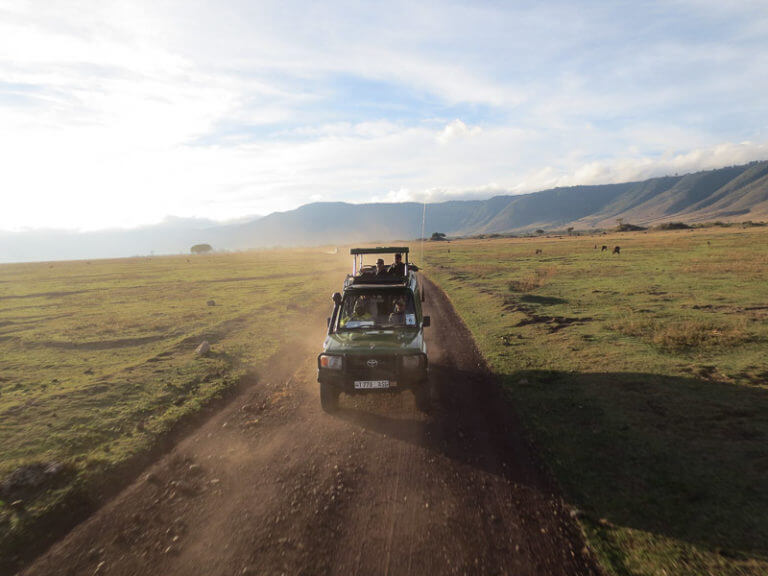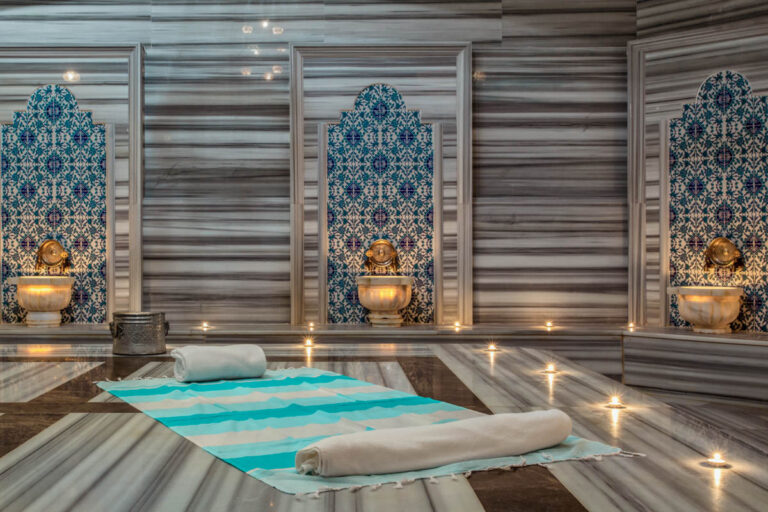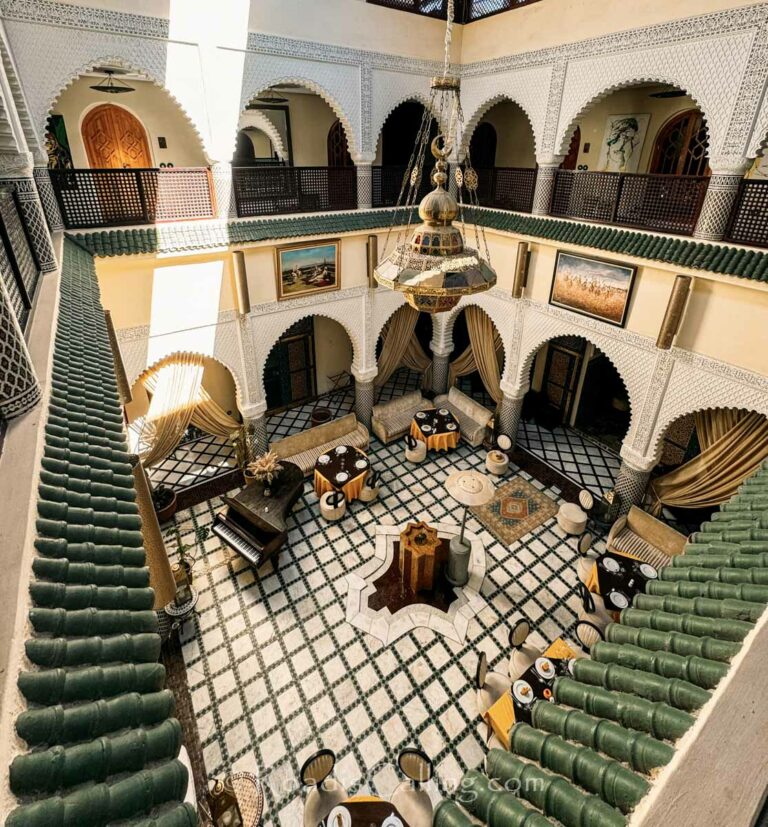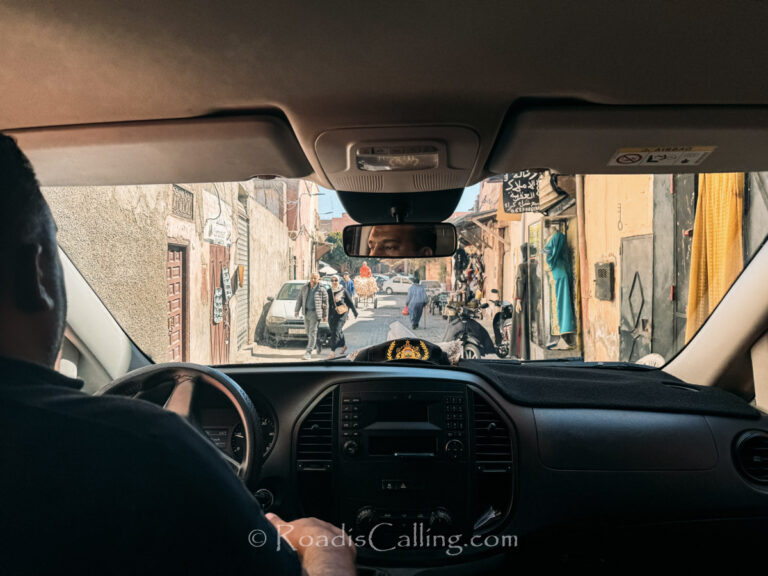Is Kenya Safe for Tourists? Honest Answers From Someone Who Lives There
Traveling to Kenya is an adventure unlike any other, but before this adventure happens, it is important to ensure that you can travel there safely. And is Kenya safe to travel to? Will you feel safe there as a tourist?
I answer these (and other) questions below providing essential advice and valuable insights to help you navigate this country securely and ensure you make the most of the exploration while keeping your well-being in focus.
I don’t just discuss potential risks and precautions but also provide a brief Kenya travel advisory and talk about its vibrant local culture and hospitality. By delving into local customs, you’ll get to understand local laws and regulations together with cultural norms that should empower you with the knowledge for a safe, enjoyable, and unforgettable trip!
Kenya is that country where you will want to return. But only if you go prepared and plan your trip right. So get ready and find out how dangerous Kenya is and how safe it is to travel to Kenya right now. Still have any questions? Drop them in the comments so we can chat!
General Overview of Safety in Kenya
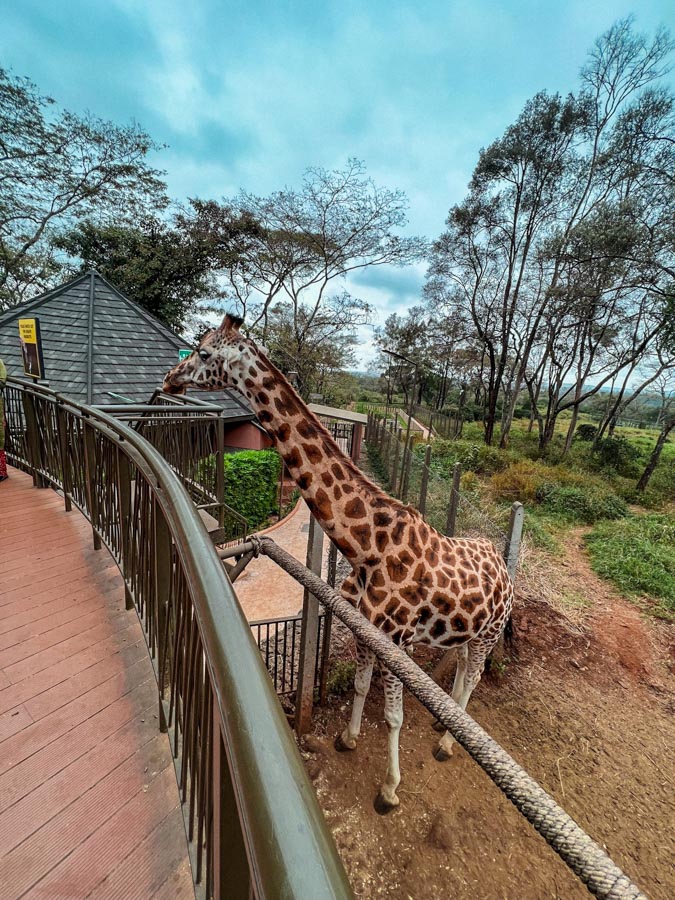
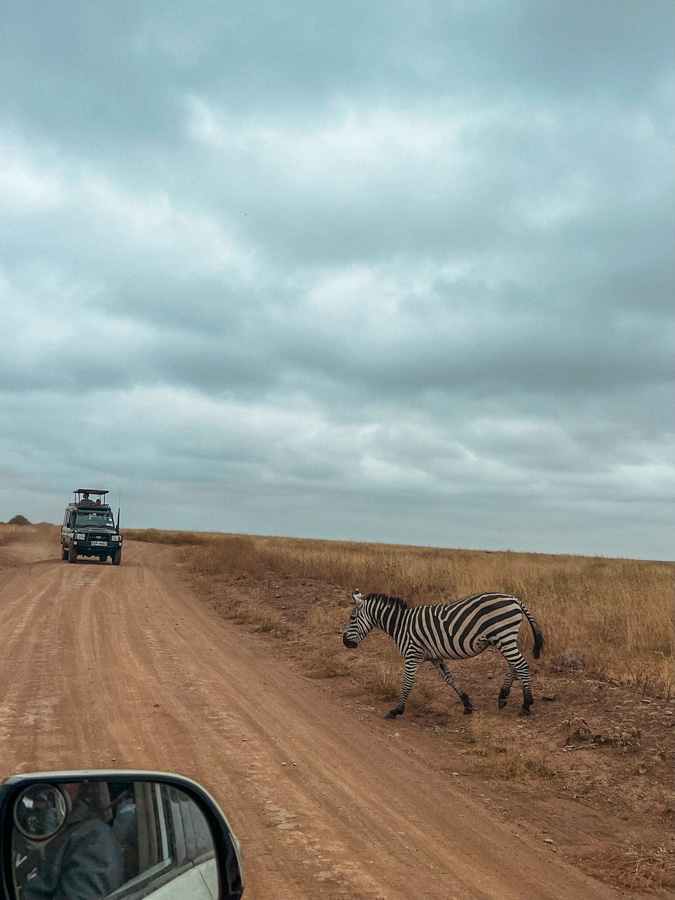
Kenya is a beautiful country with a variety of attractions, but in order to have a smooth and pleasant trip, it’s important to be aware of potential safety concerns. Here are some important things to keep in mind about safety in Kenya before planning a trip:
There is an elevated level of crime in the country, particularly in urban regions like Nairobi and Mombasa. In crowded areas of these cities (like markets and bus stops) little thefts like pickpocketing and bag snatching might happen. It is wise to keep a watchful eye on your belongings, refrain from flaunting expensive stuff, and leave essential valuables in hotel safes before heading out.
Kenya has a history of political unrest, and protests and rallies periodically devolve into violence. Prior to your trip, educate yourself about the current political climate and potential disruptions. To stay safe, steer clear of political gatherings and protests. Although some demonstrations may occur spontaneously, many are announced in advance, allowing you to plan and avoid affected areas. So you have enough time to plan accordingly on which areas to avoid.
Another thing to remember is that Kenya has a high rate of traffic accidents. These are mostly caused by ‘matatus’ (public transport buses) and ‘boda bodas’ (taxi motorbikes). Use caution and familiarise yourself with local traffic laws if you intend to drive.
However, traffic laws are often thrown out the window, especially during rush hour times. So I highly advise not to rent a car in Kenya to drive on your own. For someone visiting Kenya for the first time, it is better to either use Uber or hire a personal driver. They are familiar with the areas and also possess local knowledge including which routes to avoid during peak traffic times, ensuring a safer and more convenient travel experience.
Is Kenya Safe for Tourists in Terms of Crime
Kenya does experience varying levels of criminal activity, particularly in urban centers like Nairobi and Mombasa which tend to experience higher levels of crime compared to rural regions. Common crimes include petty theft, pickpocketing, and non-violent property crimes (like burglary, shoplifting, vandalism, or homes/cars break-ins) that take place in both crowded and quieter neighborhoods.
So it is very important to be cautious every time you leave or return to your accommodation, even if it’s a nice hotel.
I am not saying you have to be on guard all the time, no. But watch your surroundings whenever you are in the city, especially alone without a guide.
Popular tourist destinations and national parks are generally safe. These areas typically have enhanced security measures in place, including rangers and park staff who help ensure the safety of visitors. However, petty theft can still occur, so it’s crucial to remain vigilant and not take expensive valuables with you that you will be leaving in a vehicle.
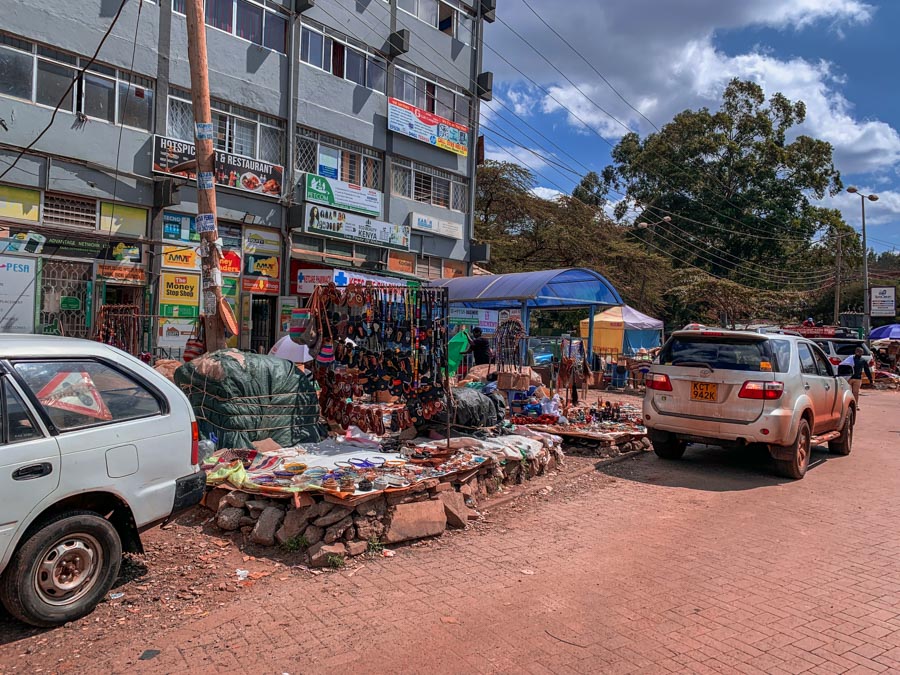
Generally, you do not need to worry if you take proper safety precautions. No one is going to attack you as a tourist.
The main thing (#1) you need to do is to research safe areas and book accommodation in one of them (even if you travel on a budget, do not choose a less secure neighborhood, better invest money in a safer place) and avoid walking around late on the streets at night no matter where you stay.
In regards to other types of crime like violence directly against individuals or attacks and assaults on tourists by criminal groups – these are almost non-existent. I mean they do happen (because there is a statistic showing it happened in the past), but they are usually not targeted at tourists specifically and don’t happen in cities.
The main types of crime to worry about and look for are petty theft, crimes that involve stealing personal belongings, breaking into homes or vehicles, and scams that are aimed to deceive individuals for financial gain. But if you follow the main safety rules, you will be totally fine.
Safety in Kenya in Terms of Scams
Speaking of scams, bad things about Kenya. These are very common around the country, including different areas of Nairobi and Mombasa. Below I’ll briefly go through all of them.
First thing to remember – you need to be very cautious of street vendors! It is very common for them to overcharge tourists or provide an incorrect change.
In well-known tourist areas, you can also run into street vendors attempting to offer you various things or services in kind of an aggressive way using persistent persuasion and strategies that may convince you to make a purchase even though you don’t need it.
Although not all street vendors use these tactics, you should always use caution and be aware of any aggressive sales techniques. Also, if buying something from a street vendor, try to have exact change, so he doesn’t need to give you any money back as chances are high you will be deceived.
Another thing, if you plan on buying anything, ask around ahead of time what the costs of these things are to determine whether you are getting a fair deal.
Next scam to be aware of is currency exchange scams. These are also pretty common.
If you need to obtain local currency, use banks, ATMs, or authorized exchange bureaus but definitely avoid exchanging money in random kiosks (even if they look legit) on the street since this may result in fake bills or very low exchange rates.
To be on the safe side, exchange money with banks only or at the hotel where you stay (if it is a reputable hotel).
Other Scams to Be Aware Of
The scams that I mentioned above are the most common ones. Below are a few other scams that you also need to watch out for. They don’t happen often but something to keep in mind.
False Tour Companies
When making reservations for tours, safaris, or other excursions, it’s always good to research ahead of time popular providers in the area. You can usually never go wrong with respectable businesses that have great reviews and are listed with the appropriate tourism board.
For spontaneous trips, it may be safer to make your reservations through your hotel (if at the last minute) or a reputable travel agency (with a bit of time in advance).
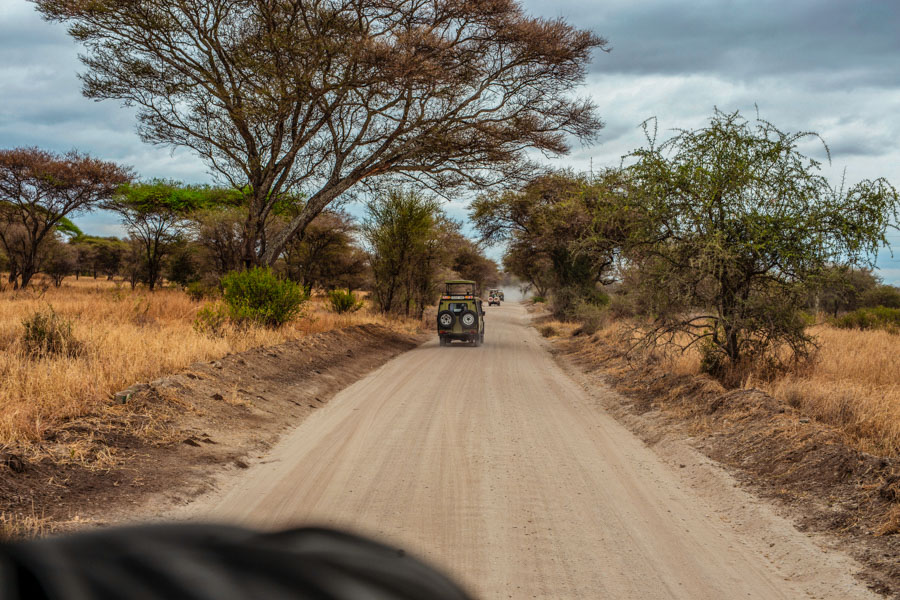
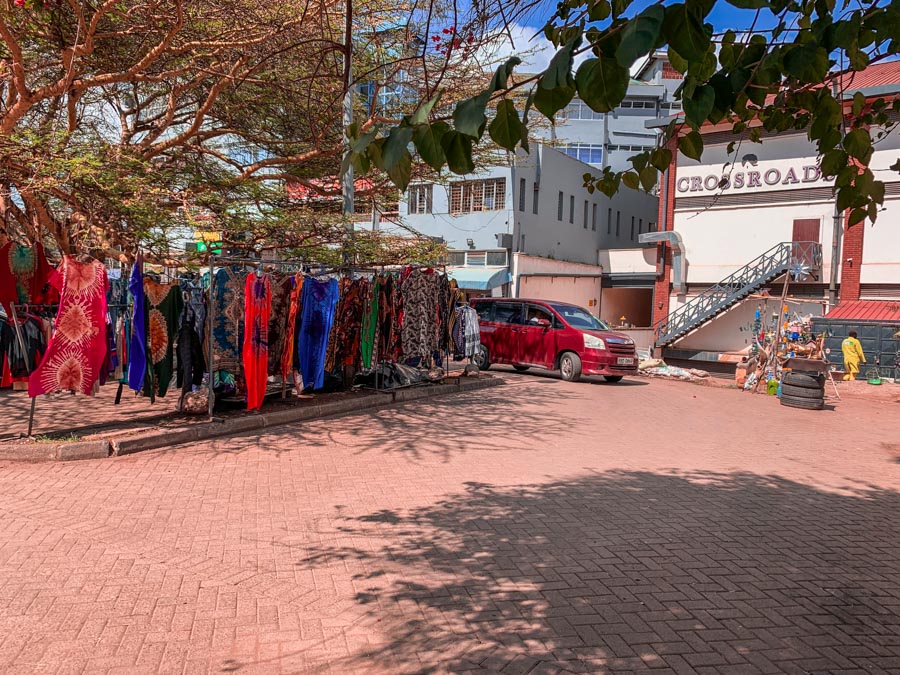
Begging Frauds & Fake Charities
With all the beauty that Kenya has to offer, there are still high levels of poverty so it is expected that you will come across beggars and street kids during your time in Kenya.
While many people in need sincerely need help, some may engage in begging fraud. For this reason, I do not recommend you give out cash to anyone who begs on the street. Most people who ask for money on the street usually end up buying drugs or alcohol.
So if you really want to help out, it’s a good idea to buy food either from street vendors or local markets and give it to them directly.
Taxi Scams
Actually I had to include taxi scams in the previous category as they are pretty common in Kenya too.
So, what you need to know here – when at all possible, use only licensed taxis or ride-sharing services like Uber. Before beginning your ride, always (ALWAYS!) agree on the fare before a trip (even if it is a licensed taxi, Uber will be fine) as many taxi drivers like to take advantage of tourists and overcharge them.
Overcharging at Local Markets
Similar to the first scam but different in a way that here (in some instances) vendors can tell you a higher price for a product than what they quote to a local. But this scam is pretty common in many countries around the world. I experienced the same scam in Cambodia and in Vietnam, and even in my beloved Turkey.
Thus, whenever you go to the market, always bargain a little bit. Usually, you’ll be able to bring down the price by about 25-35% as this is usually the “tourist premium” that local vendors add on top of the regular price.
How Safe Is Kenya When It Comes to Health
In terms of health safety in Kenya, you need to know the following:
1.) Kenya is in a malaria zone, and malaria is prevalent in many parts of the country, especially in rural areas and around Lake Victoria. This is why it is essential to take prophylactic medications, use insect repellents, and sleep under mosquito nets to reduce the risk of getting bitten.
2.) Water and foodborne illnesses are common. Waterborne diseases like cholera and typhoid are a concern, this is why drink only bottled or boiled water and avoid consuming raw or undercooked food.
In urban areas, medical facilities are generally better equipped, but in rural or remote areas, healthcare options are very limited. So you don’t want to catch any disease when outside big cities.
Overall, I’d say you need to take care of insurance before traveling to Kenya. The country has a problem with inadequate medical facilities in rural or remote areas. Good clinics and hospitals are present only in big cities and they are quite expensive (especially for foreigners). Insurance usually includes best hospitals in the country.
My Travel Tips for Kenya for You to Stay Well & Healthy
Check Vaccinations
Before you travel, speak to your doctor if she/he recommends getting the appropriate shots before traveling to Kenya. Usually, most tourists get shots against cholera, hepatitis A and B, typhoid, and yellow fever.
ALWAYS Carry Insect Repellent With You
As mentioned earlier, Malaria is very common in Kenya, particularly in regions with warmer weather and lower altitudes – such as the coastal region. That means – you need to always carry insect repellent in your bag, even if you think mosquitos don’t like you.
Personally, I’m not a fan of taking antimalarial medication as it can have adverse side effects, however, it’s important you do whatever makes you most comfortable.
But keep in mind that the situation with mosquitos in Kenya is really bad. Even without malaria, they are pretty aggressive and people who get bitten a lot will suffer the most.
So to take further steps to prevent mosquito bites, besides the repellent, try wearing long-sleeved shirts in the evening and only book accommodation that is equipped with mosquito nets.
Follow These Precautions When It Comes to Eating & Drinking
To stay safe and healthy in Kenya, you need to stick to consuming hot, well-cooked foods and only drink bottled or filtered water in order to prevent foodborne infections.
If you’d like to try out local street food, that’s usually fine, but make sure it’s cooked food (avoid salads or anything that is not thoroughly cooked). Also, stay away from the ice in your drinks. But these are very similar tactics to use when traveling in other African countries and when eating and drinking in Southeast Asia.
Be Mindful of Any Potential Health Problems Brought on by High Altitude
If you intend to travel to locations with greater altitudes, such as Nairobi, Nakuru, or parts of the Rift Valley, exercise caution regarding potential health issues that can arise due to high altitude.
Many people suffer from altitude sickness and often get headaches and nausea not even suspecting these are caused by high altitude.
So if you feel like having one of the symptoms (but usually you don’t have them), this might be because of the high altitude. So give yourself time to acclimatize (1-2 days in Nairobi should do the trick) before heading out to other areas at higher altitudes and of course stay hydrated.
Do White People Need to Be Concerned About Their Safety When in Kenya?
View this post on Instagram
This can be of concern for many people who want to travel to Kenya. But with this one, you need to know that one’s race or ethnicity has no real bearing on safety issues in Kenya, including those pertaining to one’s own safety.
People from all backgrounds travel to Kenya for leisure, business, or other reasons, and the safety of these visitors mostly depends on the area they visit, how they behave, and how well-prepared they are, not on the color of their skin.
Kenya is a varied and diversified country, and many visitors, including those of European heritage, travel there without experiencing any specific security problems. So I wouldn’t be worried about the skin color much.
Anyone can be a victim of theft or deception if he/she isn’t cautious. Even local people get scammed and targeted, not just tourists. But you shouldn’t worry much about being singled out just because you are white, this is not the case in Kenya. The same applies to visitors from India and the Middle East. Kenya is safe for Indian tourists as well.
Is Kenya Safe for Solo Female Travelers?
Well, that’s a good question. Kenya can be a safe location for female travelers traveling alone, but just like when visiting any other developing country.
I always say to all my tourists who come to Kenya on their own – exercise caution all the time, have someone meet you at the airport (like a pre-arranged transfer), choose a guide to go places rather than going on your own, do not walk at night by yourself.
Here are some top pointers for solo female travelers exploring Kenya alone:
1.) Before your journey, do an extensive study on the place you’ll be visiting and the lodging options available there. Learn about the traditions, values, and safety precautions that are unique to that particular town/village/area.
I wouldn’t recommend you plan a spontaneous trip as Kenya is not really that country where you can go planning everything at the last minute.
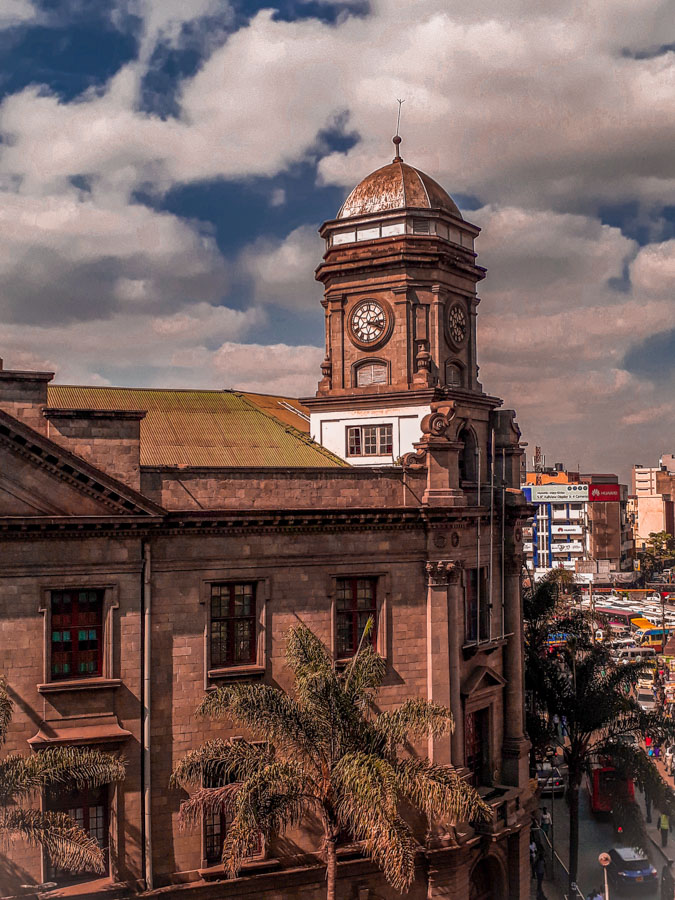
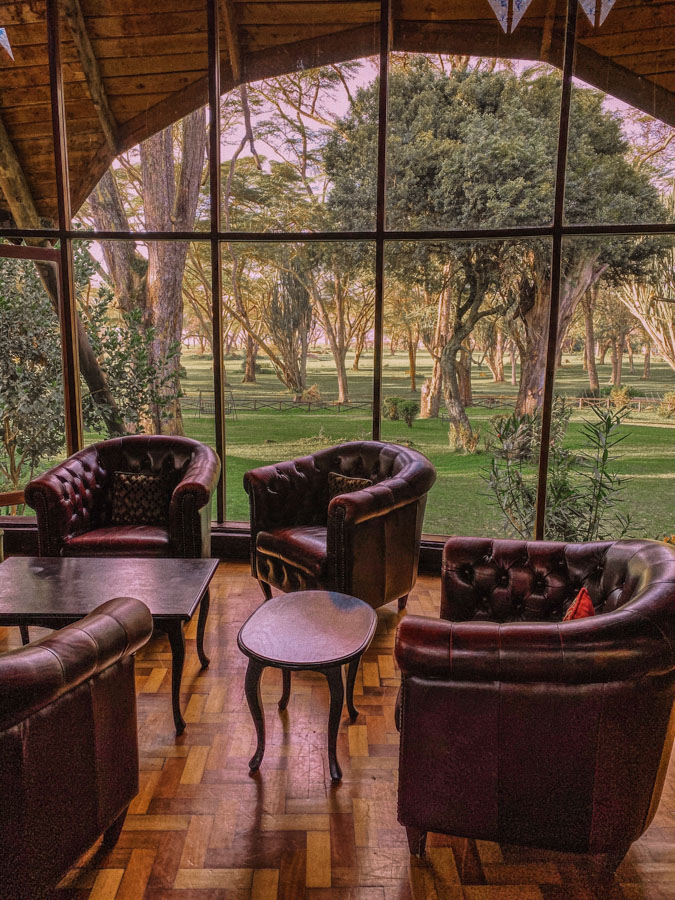
2.) Opt for well-established and reputable accommodations, such as hotels or guesthouses with good reviews. Consider places that offer 24-hour security and a secure environment.
3.) When returning to your accommodation late at night, use trusted transportation providers like licensed taxis or even better use Uber. Avoid taking rides from strangers and never hitchhike in the country.
4.) To respect local customs, please dress modestly when visiting places of worship and in more conservative areas.
5.) When out and about at night, stay in locations that are both well-lit and populated. Avoid alleys and streets that are dark or lonely.
6.) Be wary of extremely friendly strangers who approach you, especially if they seem somewhat invasive or too friendly. Recognize your gut feeling but politely reject unwanted advances.
7.) Use a money belt or covert pouch to carry your passport, cash, and other papers to keep your valuables safe. Leave expensive things in the room of the hotel and refrain from flaunting pricey accessories like jewelry or electronics in public.
Is Kenya Safe for Families With Little Kids?
Yes, traveling to Kenya is safe for families with little kids. As with all destinations, it’s important to keep a close eye on your children, especially in unfamiliar and crowded environments. But overall, there is nothing to worry about when traveling to Kenya as a family.
The only thing that I’d be concerned about is malaria. Children are more prone to mosquito bites, so you’d need to follow extra precautions to keep them safe.
Is Kenya Safe for LGBT?
View this post on Instagram
Well, yes and no at the same time.
No, it is not safe simply because same-sex relationship between consenting individuals is prohibited in Kenya. This implies that if their sexual orientation is discovered in any way, LGBT+ people could suffer legal repercussions. Arrests and prosecutions are rather few, and these laws have only occasionally been enforced. But that is the reality.
At the same time, Kenya is safe for LGBT, if you keep your identity a secret and avoid public displays of affection since there is always a risk of provoking unwanted attention or unfavourable reactions.
You also need to keep in mind that attitudes and acceptance differ greatly within a single nation, and not all Kenyans have prejudices towards LGBT+ persons. And of course, LGBT is common in Kenya too (they just hide it). But you never know who you meet and how open-minded or acceptive of others they are, especially when their rejection of others is supported by law.
Nairobi is quite liberal with more progressive attitudes and more diversity acceptance of others. Mombasa are more or less too but still, I wouldn’t openly discuss your sexual orientation or behave in a way that shows it. I know it sounds weird but unfortunately, it is better to be safe than sorry in this country.
Overall, Kenya may pose some difficulties for LGBT+ visitors, but it is still possible to have a safe trip by keeping your sexual orientation private (it’s no one’s business anyway), respecting local traditions, and being aware of the political and social climate. But behind the walls of hotels and resorts guests have all the space and privacy.
How Safe is Nairobi
Nairobi is a vibrant, diversified metropolis with a wide variety of things to offer. However, the city has its own safety concerns, and the degree of safety might change based on the area and time of day, like many other big cities across the world.
Unfortunately, the city has a problem of petty crimes like bag snatching and pickpocketing, especially in crowded places like markets and busy streets. But I experienced the same in big cities in Europe like Valencia and even Vienna, so it is all relative.
Nairobi is made up of a number of different neighborhoods, some of which are safer than others. The Central Business District (CBD) and Westlands, two central business districts, are often secure during the day.
However, some places—especially slums and informal settlements—might have a higher crime rate, so it’s best to proceed with caution there.
Be watchful about your possessions no matter where you go but more so in busy areas and on public transport.
Nairobi is also known for its heavy traffic, which can cause annoyance and delays. So I’d recommend you plan your transportation appropriately and stay off the streets when there is a lot of traffic.
To lower your chance of being a target for theft, keep expensive objects like jewelry, electronics, or big amounts of cash hidden from view.
How Safe is Mombasa
Mombasa has a variety of neighborhoods and the level of safety varies amongst them. For the most part, you will feel comfortable visiting the popular coastal regions like Diani Beach, Nyali, Bamburi, and Malindi.
However, it’s advisable to use caution in the city center because some districts, especially Mombasa’s old town, has higher crime rates.
Although Mombasa’s beaches are a top tourist destination, it’s crucial to use caution when swimming in the sea. There are strong currents near the shore that cause potential dangers, so you want to pay attention to warning flags and adhere to lifeguard advice. They are set there for a reason.
Similar to Nairobi, busy places and markets in Mombasa are potential hotspots for petty crimes like bag snatching and pickpocketing. Be watchful about your possessions, especially when using public transport and in busy areas.
A Few of My Personal Tips for Tourists to Stay Safe in Kenya
Kenya is an amazing country to visit, especially for a tourist who likes to explore lesser-visited places. But the main tip that I could give to someone who comes to visit Kenya for the first time – is to follow local customs and respect the culture together with the rules that are set here.
I know that you may feel annoyed by the fact that you need to dress modestly or you can be angry over the fact that LGBT is not accepted. But those are realities of Kenya that are easy to adjust to.
Kenya as a country is very welcoming to tourists, given that a significant percentage of its GDP comes from tourism revenues, so the country and its people are quite used to visitors and are very welcoming and polite.
I know you will enjoy your trip if you plan everything ahead of time and if you are ready to follow all the safety precautions I recommend. And to be honest, there are not really too many of them.
They are very similar to many precautions you’d take in many other countries popular for travel, probably with the only exception of malaria which requires some extra attention. And you need to approach it with all seriousness if thinking of traveling to rural areas along the coast, western part of the country, and regions of the Rift Valley.
More Posts About Safe Travel Around the World
- Is Montenegro Safe for Tourists? – for travel and life for foreigners
- Dangerous Neighborhoods of Istanbul – areas and places that are better to avoid as a tourist
- How Safe is Barcelona? – along with other travel tips
- Travel Tips for Ukraine – things to know before you go
- Things to Know About Morocco – for first-time visitors
- Travel Advice on Dubai – if you are visiting for the first time
More Posts About Travel in Africa
- First Time in Morocco – things no one tells you about
- Finding the Best Riad in Marrakech – tips to remember before you book it
